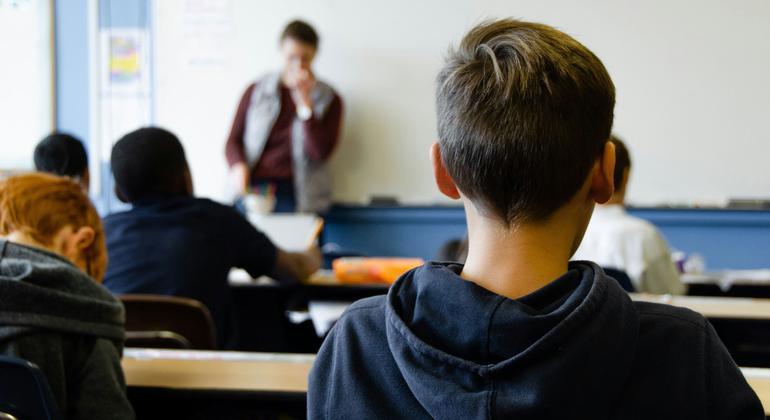The findings, based on data from almost 280,000 young people aged 11, 13 and 15 in 44 countries, highlight a growing crisis in youth wellbeing, with girls and economically disadvantaged young people the hardest hit.
“Young people today face unprecedented challenges in their social environments“, said Dr Hans Kluge, WHO Regional Director for Europe, “with potentially long-term consequences for their health and future life prospects.”
“These results should be one a wake-up call to all of us to act now to improve the conditions under which our young people grow up,” he stressed.
Decline in family and peer support
Family and peer support are crucial pillars of young people’s mental health and overall development, but the report shows a worrying decline in both.
Between 2021 and 2022, only 68 percent of young people reported feeling supported by their families, down from 73 percent in 2018.
The drop was even steeper for girls, where only 64 percent felt strong family support, compared to 72 percent in 2018.
Correspondingly, peer support fell by three per cent. This decline was particularly pronounced among older youth, who are already more vulnerable to mental health challenges.
Furthermore, the report shows that socio-economic status continues to play a significant role in shaping teenage experiences, with a nine per cent gap between young people from low incomes and those from wealthier households.
The difference extended to peer relationships, with people from disadvantaged backgrounds also less likely to feel supported by their friends or classmates.
Anxiety in the classroom
Academic pressure is amplified with significant consequences for young people’s mental health.
Two-thirds of 15-year-old girls reported feeling overwhelmed by schoolwork during the survey, up sharply from 54 percent in 2018. Boys also reported increased pressure, though at lower rates.
Dr. Irene García-Moya, one of the report’s authors, stated: “The increasing pressure on teenagers is a multifaceted problem. Girls are often caught between competing expectations of academic excellence and traditional social roles, while boys may face pressure to appear strong and self-reliantdiscourages them from seeking the necessary support.”
The report also found that girls are less likely to feel supported by their teachers.
“These findings point to a critical and growing gap in support structures for adolescent girls, who not only face greater school-related pressures but also experience less support from family and teachers compared to boys,” warned Dr. Natasha Azzopardi-Muscat, WHO Director of Country Health Policies and Systems for Europe.
“This is not the first time that our HBSC studies point to different health impacts between boys and girls,” she added. underlines the need to take the gender dimension of the issue into careful consideration.
Recommendations for action
“Our results clearly show that no single sector or industry can solve these challenges alone,” said WHO regional director Kluge, emphasizing that the report calls for urgent coordinated action.
“Building safer and more inclusive school environments, providing financial support where needed and implementing gender-sensitive interventions all require the involvement of different spheres, from education to health to public policy,” he added.
Key recommendations include strengthening family supports by creating targeted policy interventions for families, such as parenting programs and financial assistance for low-income households.
It is also crucial to reduce school pressure. The authors advocate more balanced homework policies for schools, reducing class sizes and integrating mental health support into the curriculum.
Furthermore, it is crucial to address inequalities through inclusive social policies and programs that prioritize marginalized communities.
Dr. Kluge emphasized the importance of including teenagers in every step of the policy-making process. He noted that “this is a key feature of the WHO/Europe flagship Youth4Health initiative, to ensure that young people have a far greater say in decisions that affect their lives.”



